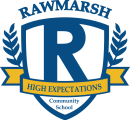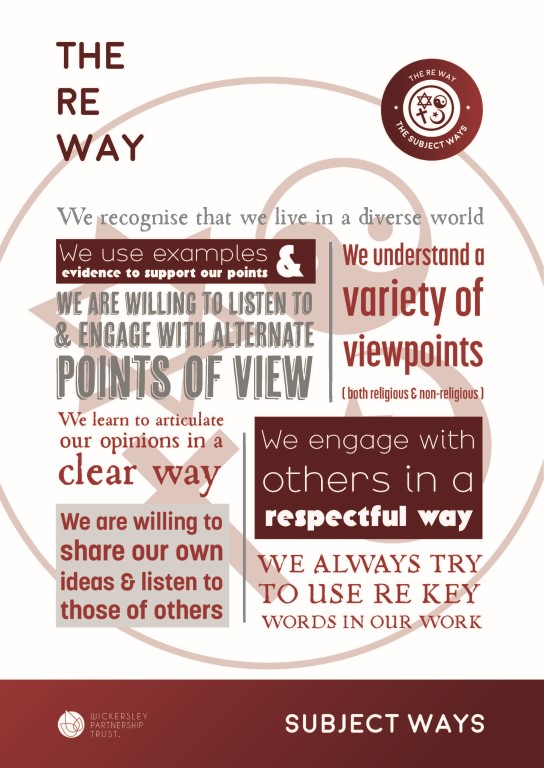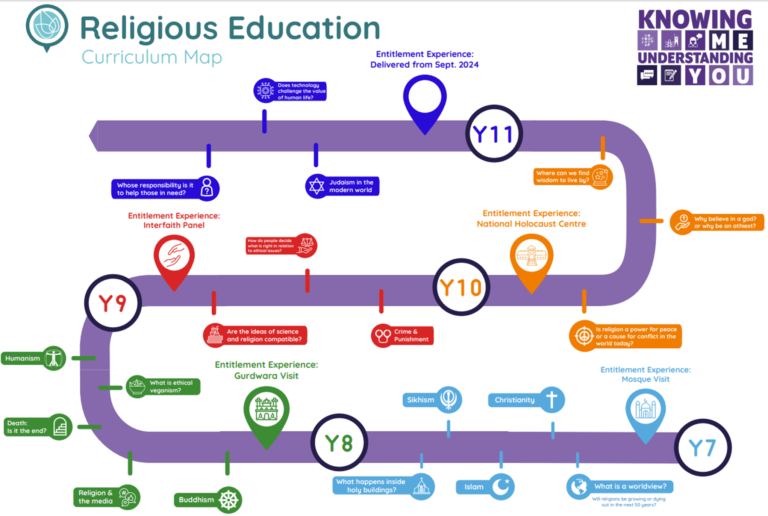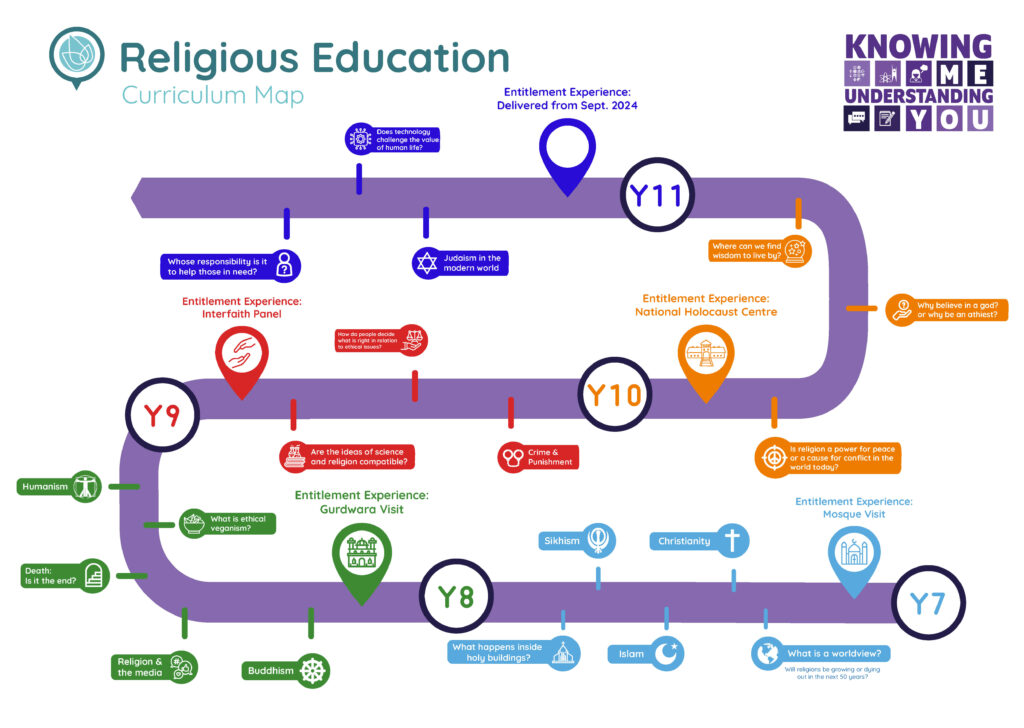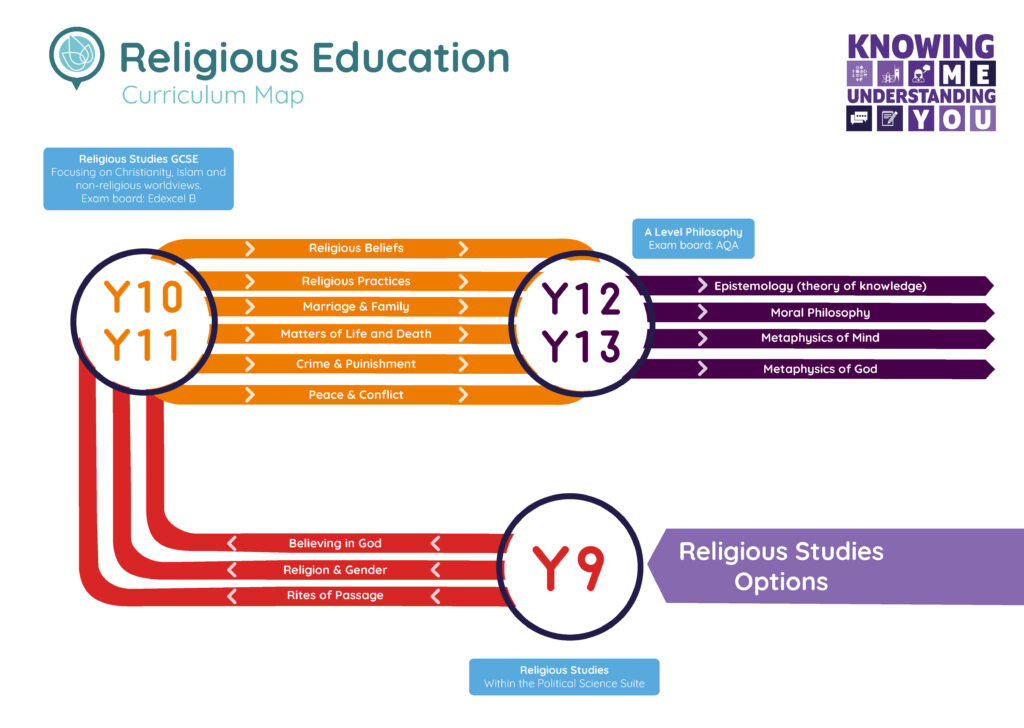Curriculum
Religious Education
Overview
At Rawmarsh, RE enables students to engage critically with significant ethical, philosophical and social issues in order to understand the world we live in more fully. Students learn about a wide range of religious beliefs and practices, including non-religious worldviews. They do this for the development of their knowledge, for their capacity to flourish in our diverse society, and for their growing understanding of their own identity and outlook. At Rawmarsh students are encouraged to develop their own considered opinion, to articulate their views, and engage in productive dialogue and debate with others.
In order to fulfil this purpose, RE lessons at Rawmarsh are aimed at developing, with increasing depth and discernment, students’ knowledge and understanding of religious traditions and non-religious worldviews. Students will learn how religious identity influences people’s lives and will be encouraged to express their own considered opinions about the nature and value of religion on people and the planet. Students will develop the skills of listening, speaking and discussing, as well as those of enquiry, analysis and evaluation.
- Removing barriers to learning
- Developing knowledge and skills for learning
- Developing personal attributes
- Enriching students’ experiences and broadening their horizons
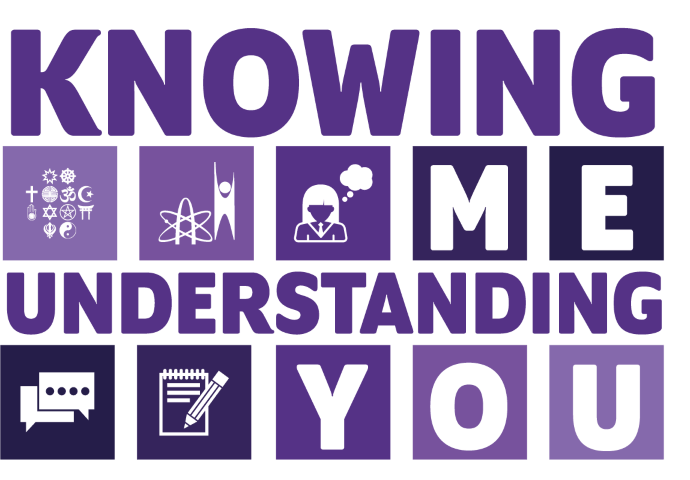
The Subject Way
Our subject has a ‘Subject Way’ at the heart of it. Our Subject Way is designed to help students become young subject specialists. The Subject Way has two main purposes:
Firstly, to teach students the vital skills they need to achieve their full potential and gain the very best grades they can. Secondly, to teach students how each subject relates to the wider world, incorporating the life skills they will learn.
It is our belief that knowing how what you learn links to the wider world brings a subject to life and therefore improves overall understanding and engagement.
Core Religious Education
All students* receive timetabled Religious Education lessons delivered as part of their core curriculum. Within these lessons students have the opportunity to develop an understanding of the main beliefs and practices of a variety of worldviews and they also have an opportunity to study worldviews by focusing on themes, such as the media and life after death. Across key stage three RE students are assessed across two skills: Knowledge and Understanding and Personal Opinion and Debate. At key stage four students complete a non-examined RE course which is designed to aid students personal development ensuring they leave us with the skills to play their full role within an everchanging and diverse world.
Across all key stages our RE curriculum is designed to include entitlement experiences such as visits to places of worship and talks from visiting speakers which compliment classroom learning.
*Year 11 from September 2024.
Religious Studies Options
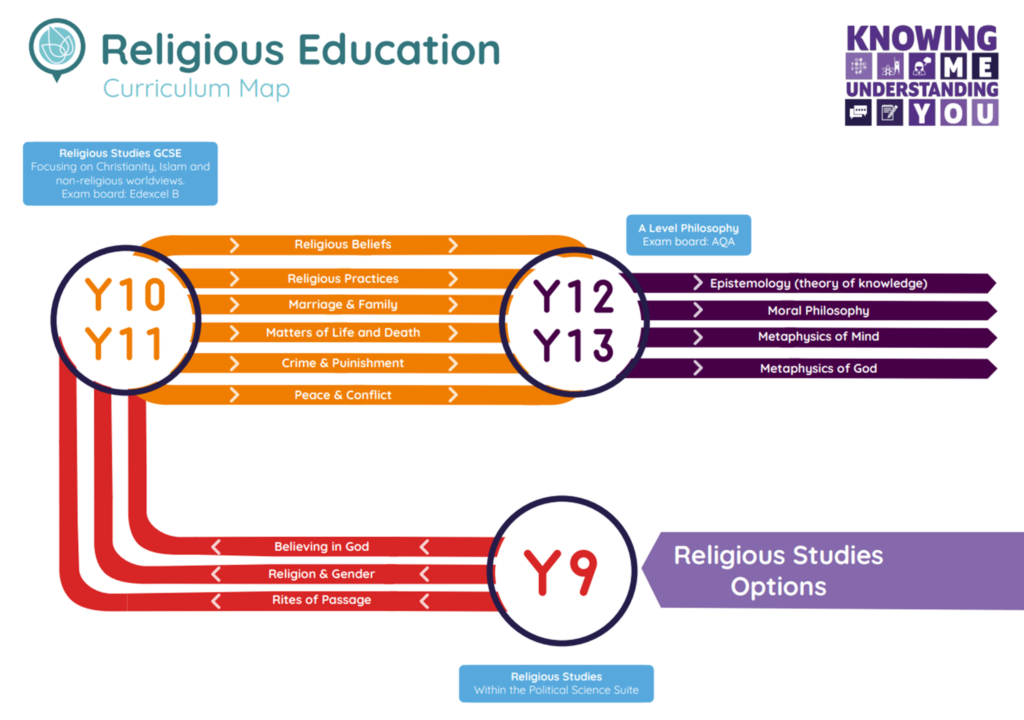
In addition to the core Religious Education curriculum students can opt to enrich their learning further by taking an examined course.
YEAR 9 RS within the Option Suites
If students opt to study the Political Science suite of subjects they will experience a foundation course for GCSE Religious Studies. Within this suite of subjects students will develop an understanding of the skills required for the GCSE course by covering some foundational topics such as Belief in a god, Religion and gender and Rites of passage.
YEAR 10 & 11
If selected as an option students in Year 10 and 11 complete the Edexcel (Pearson) GCSE B course. The course involves an in-depth study of Christianity for Paper 1, this has units on Marriage and Family, Beliefs, Practices and Matters of Life and Death. Following on from this, students study Islam for Paper 2; this has units on Beliefs, Crime and punishment, Living the Muslim Life & Peace and Conflict. Both papers require students to have an understanding of non-religious worldviews (i.e. atheist and Humanist) on the topics of study too. This course require students to demonstrate a thorough Knowledge and Understanding of religion and belief and an ability to debate. Both papers will be sat at the end of Year 11.
Find out more
If you would like more information about our curriculum, please contact the school using the details on our contact page.
Our Subjects at KS4
CORE SUBJECTS
EBACC SUBJECTS
OPTION SUBJECTS
INTERVENTIONS

